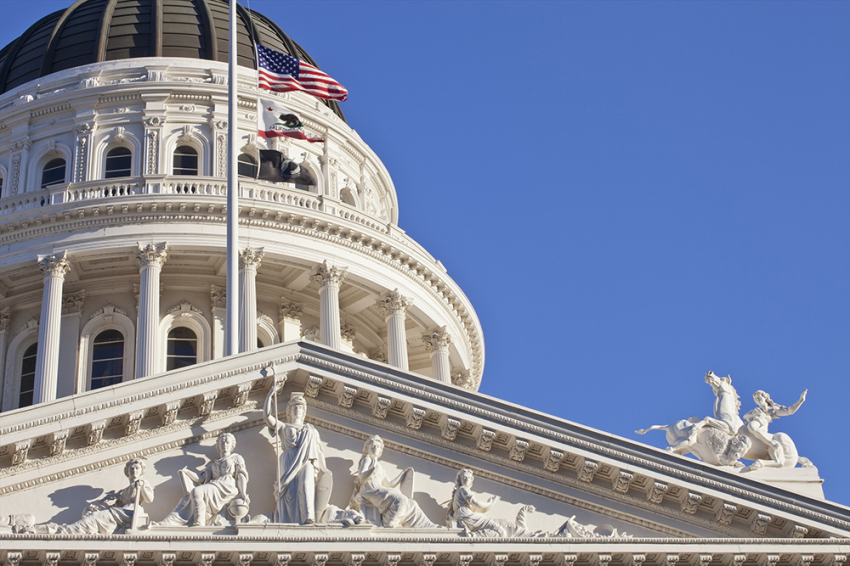California bill would create fund to help women from out of state seeking abortions

Lawmakers in California have introduced a bill that would set aside taxpayer money to help women residing outside the state obtain abortions in the state as concerns about significant changes to the United States abortion law loom.
Senate Bill 1142, introduced last week by Democratic Sens. Anna Caballero and Nancy Skinner, includes several proposed requirements for state agencies relating to the provision of abortion services in the state.
Specifically, “the bill would require the California Health and Human Services Agency, or an entity designated by the agency, to establish an internet website where the public can find information on abortion services in the state.”
Additionally, the bill will also establish an “Abortion Practical Support Fund” and “require the commission to administer the Abortion Practical Support Fund for the purpose of providing grants, upon appropriation by the Legislature, to assist pregnant people who are low income or face other financial barriers with access to abortions in California, and for research to support equitable access to abortion.”
The legislation cites concerns about the possible overturning of Roe v. Wade, the U.S. Supreme Court decision that legalized abortion nationwide, as the justification for taking these measures. The bill warns that if such a scenario unfolded, “people in over one-half of the states in the country, over 36,000,000 women and other people who may become pregnant, will lose access to abortion care.”
“California is committed to building upon existing protections to the right to abortion and implement innovative and bold programs and policies to truly be a reproductive freedom state,” the bill reads. “For decades, abortion funds, abortion providers, and other community-based organizations have provided direct and indirect support to callers and patients with logistical and practical support needs.”
“These funds assist patients seeking abortion services within California, patients traveling to California, and when patients need to travel outside of California for care,” the legislation added.
The legislation maintains that “the unmet need for logistical and practical support for people seeking abortions is far greater than the resources that are currently available through California’s sole statewide abortion fund and, therefore, abortion providers and community-based organizations must currently independently fundraise to meet these needs.”
Skinner addressed her concerns in a statement released following Senate Bill 1142’s introduction.
“The U.S. Supreme Court’s conservative majority seems poised to do the unthinkable,” she claimed. “If the court overturns 50 years of settled law and takes away a woman’s constitutional right to an abortion, California will not stand idly by.”
“With SB 1142, California sends a clear message to the rest of the nation: We are fully committed to ensuring that California women and those who may seek refuge here have access to all reproductive services, including abortion,” she added.
Planned Parenthood Affiliates of California, a pro-abortion advocacy group, also praised the legislation.
“Barriers to abortion go beyond laws. Whether you are a resident of California or you are seeking care in California, barriers like travel costs, childcare, taking time off work, and other logistical concerns too often stand in the way of accessing abortion care,” said PPAC President and CEO Jodi Hicks. “SB 1142 is what we need to break down barriers.”
According to Hicks, Planned Parenthood supports SB 1142 because “health center doors are open for any patient who needs services, and we want to ensure those patients are supported throughout the process and can easily access the information they need, when they need it.”
The effort to pass Senate Bill 1142 comes as the Supreme Court is slated to rule this year in the case of Dobbs v. Jackson Women’s Health. A decision in favor of the state of Mississippi, which is seeking to uphold the state’s 15-week abortion ban, would reverse or weaken the precedent set by Roe.
The state of Texas has drawn the ire of abortion advocates after it passed a law last year banning abortions once a heartbeat can be detected, usually about six weeks into pregnancy. Despite legal challenges against it, the law was allowed to go into effect by the U.S. Supreme Court.
As several states have passed laws in recent years placing limits on legal abortion, the California bill contends that the groups that typically provided support to women seeking abortion are “heavily impacted by the increase in abortion restrictions across the country and the need for patients to travel to receive care.”
The proposed legislation predicts that “[a]s more patients come from out of state, abortion fund organizations, abortion providers, and other community-based organizations that offer practical support” will “need financial support to meet the demand of people needing care.”
The Abortion Practical Support Fund that the bill would create would be administered by the California Health and Human Services Agency using funding provided by the state legislature.
The commission would provide funding to nonprofit organizations that help women access abortion and “public research institutions in California that conduct research on reproductive health, law, and policy, including research on abortion, contraception, and pregnancy.”
Nonprofit organizations can use the grants to pay for “practical support services.”
Those services include “direct assistance, such as airfare, lodging, ground transportation, gas money, meals, dependent childcare, doula support, and translation services, to help a person access and obtain an abortion.” They also include “abortion navigators, patient navigators, and community health workers services,” “case management support” and other costs associated with running their businesses.
Public research institutions can use the grants to “identify unmet educational and health needs related to abortion services which take into account community preferences for types of abortion services and level of care.”
The grants can also be used to “accurately assess the needs and preferences of people experiencing barriers to sexual and reproductive health, including abortion care” or “evaluate, track, and assess progress and impact of any program, policies, and innovations proposed as part of the recommendations of the California Future of Abortion Council.”
California is not the only state to introduce a left-leaning abortion bill in recent weeks. Earlier this month, the Colorado House of Representatives began debate on a bill that would remove all abortion restrictions in the state and explicitly ban unborn children from having rights under the laws of the state.
Ryan Foley is a reporter for The Christian Post. He can be reached at: ryan.foley@christianpost.com



























